Viewing: Blog Posts Tagged with: captain bluebear, Most Recent at Top [Help]
Results 1 - 23 of 23
Blog: Star Bright Books (Login to Add to MyJacketFlap)
JacketFlap tags: writing children's books, submission guidelines, manuscript submission, Grandma is a Slowpoke, I Have Cerebral Palsy. Mole Catches the Sky, Add a tag
Blog: Writing and Illustrating (Login to Add to MyJacketFlap)
JacketFlap tags: picture books, inspiration, publishers, submission guidelines, authors and illustrators, opportunity, Flashlight Press, Picture book publisher, need to know, Places to Submit, Add a tag
FlashLight Press is celebrating their 10 year in the publishing business. They are a small publisher and only publish a few books each year, but they specialize in picture books. Check out their awards pages. I was impressed with what they have accomplished. You may even recognize some of the artwork on their covers, since many of their illustrators have been featured on Illustrator Saturday. Click on the illustration that shows off some of the character in their books to look over their book catalog.
SUBMISSION GUIDELINES:
If you have a story you want FLASHLIGHT PRESS to consider:
First, make sure your manuscript fits the following criteria:
- is a fiction picture book (NOT a concept book, non-
fiction, an early reader, a chapter book, or a YA novel)
- has a universal theme (but no holiday themes, and no
talking inanimate objects)
- deals with family or social situations
- targets 4-8 year olds
- is between 500-1,000 words
- feels like a Flashlight book (Please read about our
books to determine whether your story really feels like a
fit.)
If your manuscript meets their criteria:
- send a query email describing your story (plot, word
count, target audience, what makes this story unique) and
a bit about yourself, to Shari Dash Greenspan at
[email protected]
- do not send snail mail queries. We disregard and
recycle all snail mail submissions.
- do not send attachments (instead, type your query
into the body of the email.)
- do not send your full manuscript (neither attached nor
pasted into the email).
Then:
- you will receive an automated reply within a week or so
that we received your email query.
- if we wish to see your full manuscript, we’ll let you know
by email within a month or so. If you do not receive an
email requesting your full manuscript, please realize that
your story was not considered a fit for our line.
Manuscripts, when requested, will be evaluated within three to
four months.
Important tip: unless you are also an artist, do not include
illustrations with a requested manuscript.
If you create artwork that you want them to consider:
- Explore our site to be sure that your style could be a fit.
- Please do not send any samples by snail mail – we are going
paperless and will recycle all paper samples we receive.
- Do not send attachments. Instead, please paste a few sample
jpegs into an email. Then we don’t have to open any files and
can easily view your artwork.
- Do include links to your online portfolio in your email.
- Send the email to [email protected].
- We‘ll keep your information on file for future reference, and will
be in touch if we have any projects to offer.
Make this the year you revise and submit. Gook Luck!
Talk tomorrow,
Kathy
Filed under: authors and illustrators, inspiration, need to know, opportunity, picture books, Places to Submit, publishers Tagged: Flashlight Press, Picture book publisher, submission guidelines
Blog: Writing and Illustrating (Login to Add to MyJacketFlap)
JacketFlap tags: picture books, publishers, Young Adult Novel, submission guidelines, Middle Grade Novels, opportunity, Rana DiOrio, Places to Submit, Little Pickle Press, Emma D Dryden, Add a tag
In 2009 Rana DiOrio founded San Francisco-based Little Pickle Press, a 21st century publisher of high quality, high impact media for children.
Most of you know how I love reading journey stories, so when I noticed Emma Dryen’s great interview today with Rana on her blog, I thought you might like to read it too. It also made me want to check out Little Pickle Press. The first thing that impressed me was the quality of their website and books, so if they were to publish your book, you would not have to worry about placing your baby in their hands. I knew they were a small press publisher, but I thought they were only interested in picture books. I was wrong. They are open to receiving manuscripts all the way up to YA. And they are open to non-agented writers.
I am so glad I took the time to read Emma’s interview and visit Little Pickle Press because I would not be able to share the Submission Guidelines below and the opportunity to find a good home for your books.
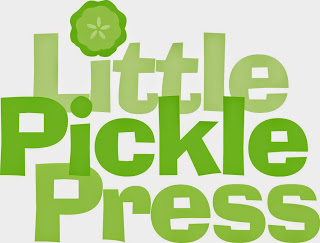
If you’re going to aim high, you need the right launch pad. Does your goal involve writing the next great children’s book or YA novel? Little Pickle Press wants to know about it, and we’re working with Submittable to make it even easier to share your best ideas with us.
Step 1: Write!
We can’t read your mind, so get those fabulous ideas written down. Bear in mind that while there are scores of topics to choose from, the mission statement of Little Pickle Press is your best guide to the sort of manuscripts that we’re seeking. These include (in no particular order and not exclusively):
- Altruism (and other anti-narcissism, anti-entitlement themes)
- Dare To Be Different
- Tolerance/Acceptance
- Non-traditional family structures
- Choices: It’s Not All Black And White; Most of Life is Gray
- Anti-Princess Themes
- Strong, female protagonists
- Creativity—the importance of it, fostering it, etc.
- Divergent (vs. Convergent) Thinking
- Systems Thinking
- Self-Sufficiency/Taking Care of Yourself and Your Community/Planting the Seeds of Being a Locavore
- Water as a precious, global resource
- Creativity: the importance of it, fostering it, etc.
- Forgiveness
- Gratitude
- What is a conscience? How do we foster it? Use it?
- Leadership and/or Entrepreneurship
We’re growing with our readers, so don’t think you have to create a picture book if you have a novel rattling around in your brain. We’re seeking picture books for 5 to 8 year olds, chapter books for 9 to 12 year olds, and middle grade novels for 10 to 14 year olds. In addition, we’re now accepting manuscripts in the young adult novel category for readers ages 15 and up. We are open to the literary vehicle employed to convey the story—fiction, historical fiction, fantasy, science fiction, creative nonfiction, etc.
Step 2: Get it ready!
Okay, so you’ve written your book. You’ve shared it with friends, family, and that neighbor down the street who’s known for disliking pretty much everything. They all agree that your book is the best thing since sliced bread. Now what?
Now you or your agent can send it to us! We’ve got a few uniformity guidelines to keep all submissions easy to read, and here they are:
- As an MS Word document
- Double-spaced
- With Times New Roman font 12-pt
- With your suggested title and name at the top as well as a word count
- With pages numbered
- Without illustrations
Relatively painless, wouldn’t you say? That’s because we’ve been saving the hard part for last. Everybody has a creative spark, and following instructions is a snap. Now for the really tough step.

Step 3: Send it in!
Sending your carefully-wrought manuscript off to a real, live publishing company is one of the most exciting and stressful things that you can do. But don’t worry. We don’t bite. Follow the submissions link, take a deep breath, and click!
Step 4: Sit back, but don’t relax just yet.
We have lots of manuscripts to consider, so it will take up to 8 weeks before we get back to you. While you’re waiting, why not see what other great story ideas you’ve got? Children need and deserve books. Whether it’s an imaginative tale that encourages creativity, or an engaging story that fosters responsibility and social awareness, Little Pickle Press seeks to offer the very best in children’s literature. Will you help us?
Hope this information helps push you closer to finding a home for your book.
Talk tomorrow,
Kathy
Filed under: Middle Grade Novels, opportunity, picture books, Places to Submit, publishers, Young Adult Novel Tagged: Emma D Dryden, Little Pickle Press, Rana DiOrio, submission guidelines
Blog: Writing and Illustrating (Login to Add to MyJacketFlap)
JacketFlap tags: publishers, Young Adult Novel, submission guidelines, Middle Grade Novels, authors and illustrators, opportunity, Canadian writers, Places to sumit, email sumissions, Rebel Light, Add a tag
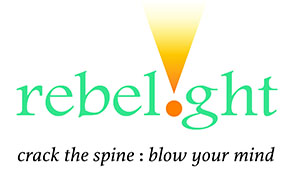
Submission Guidelines
What we want:
- Manuscripts for middle grade, young adult and new adult novels
- Well written and edited stories of any genre with riveting plots, dynamic and developing protagonists and antagonists we love to hate.
- Work from Canadian writers that appeals to a worldwide market.
Emerging writers and experienced authors welcome! Published authors, feeling stuck writing in one genre for your publisher and want to try something new? We are all ears.
What we don’t want:
Holiday stories • Graphic novels • Poetry • Short stories • Illustrations • Picture books • Non-fiction • Erotica • Previously published work (including self-published works)
Some helpful hints:
- Have your manuscript edited by a third party who has a strong understanding of writing for young people. Your mother does not count, unless her name is J.K. Rowling.
- A couple helpful reads: Rivet Your Readers with Deep Point of View by Jill Elizabeth Nelson and Writing Great Books For Young Adults by Regina L. Brooks.
- Your work has a better chance of serious consideration if it is presented in a professional manner, so please follow our submission guidelines below.
Submission Guidelines:
- Rebelight Publishing Inc. is environmentally friendly and accepts emailed submissions only. Mailed submissions will be shredded and not responded to, a waste of your money (& trees).
In the body of the email (for security reasons attachments will not be opened), your submission should include:
- A one-page query letter
- Your author CV
- A one-page synopsis
- The first three chapters of your manuscript.
- The email subject line should read as follows: “Submission – Your First Name Your Last Name, Manuscript Title.”
- Do not send more than one manuscript at a time.
- Address all emails, “Dear Editor:” (Yes, this goes against most advice given to writers… it’s OK. If your manuscript is accepted you’ll be introduced to your editor.)
- We accept simultaneous submissions, however, as a courtesy, please let us know if your manuscript has been accepted elsewhere.
- Should we request a full manuscript, it must be submitted in standard 8.5 x 11” format, typed in Times Roman 12 pt font and double-spaced. Submit as a Microsoft Word file.
Submissions are usually processed within three (3) months. Please do not contact us any sooner about your submission. Due to the volume of submissions, we cannot provide editorial comments on manuscripts. Email submissions to: [email protected] You’ve worked hard and shown perseverance to get a manuscript ready for submission. We look forward to hearing from you.
Talk tomorrow,
Kathy
Filed under: authors and illustrators, Middle Grade Novels, opportunity, Places to sumit, publishers, Young Adult Novel Tagged: Canadian writers, email sumissions, Rebel Light, submission guidelines
Blog: Writing and Illustrating (Login to Add to MyJacketFlap)
JacketFlap tags: Editor & Agent Info, Publishers and Agencies, Places to sumit, Frances Black, Jennifer Mishler, Literary Counsel, Agent, Young Adult Novel, submission guidelines, Add a tag

Literary Counsel is a boutique agency located in New York City.

It has two agents:
Frances Black – looking for:
•Contemporary Romance
•Mysteries
•Historical Romance
•New Adult
 Jennifer Mishler looking for:
Jennifer Mishler looking for:
•Young Adult Romance
•Young Adult Contemporary
•Young Adult Literary
•Young Adult Historical
•New Adult
Jennifer is seeking Young Adult Fantasy, Young Adult Contemporary, Young Adult Literary, and Young Adult Historical.
Twitter: @literarycounsel
Visit her here: about.me/jennmishler
They only accept queries on the 1st and 2nd of each month.
Their Guidelines:
• Genres and Specialties: Romance—contemporary and historical, prior to 1930—Mystery/Crime, YA (Young Adult Novels) and New Adult. No vampires, no werewolves and no erotica.
• Please send us an EMAIL to [email protected] (this is our submission address) with a summary of your manuscript, a short biography introducing yourself, a way to contact you and ATTACH the first three chapters of your manuscript and a SYNOPSIS as a Word doc.
• Your subject line should tell us what genre your manuscript is. (Example: A Young Adult Contemporary, A Historical Romance, A Mystery)
• Please do not paste the chapters in the body of your email (it’s difficult for us to read submissions this way!)
• In your attachment, please have your title, your name and contact info in your first three chapters. Also, make sure your manuscript has page numbers.
• Please include the following information: What genre you feel your work is most like, any similar titles and who your audience is.
• Make sure everything you submit to Literary Counsel has your name included, email address and also please have page numbers.
Some advice..
• If you submit outside the submission deadlines, your manuscript WILL NOT BE READ.
• Your manuscript needs to be double spaced.
• Be professional and courteous in your approach to us. We form an impression based on your e-query, and you want it to be a good impression. Do not write your query in a rush. Take the time to write it well. Make sure your query and manuscripts are polished and error free.
• It could take up to a month to respond to your initial query letter and if we want to read more of your manuscript, we will ask for it.
•The process of reading an entire manuscript can be long. We try to read as much as we can. Please be patient.
Talk tomorrow,
Kathy
Filed under: Agent, Editor & Agent Info, Places to sumit, Publishers and Agencies, Young Adult Novel Tagged: Frances Black, Jennifer Mishler, Literary Counsel, submission guidelines
Blog: Darcy Pattison's Revision Notes (Login to Add to MyJacketFlap)
JacketFlap tags: reviews, writing life, submission guidelines, writing for fiction notes, Add a tag
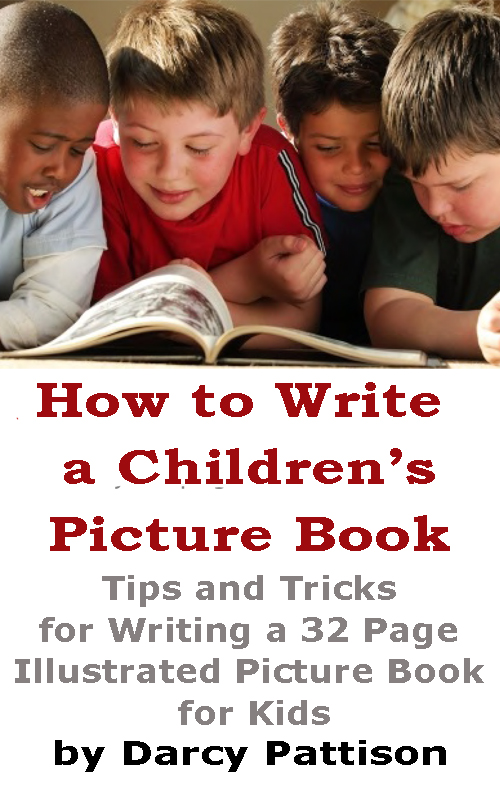 |
All I want for Christmas is. . .
Well, let me talk about YOU first. I would love to feature you on my blog sometime in the next year. Here’s my wishlist of topics (but feel free to pitch me something else!). Got an idea? Email me at darcy at darcypattison dot com.
- I am always a sucker for a revision story. If you have a book coming out and can give me a story about revising the content–you’re on! (I think that covers everyone, doesn’t it?)
- Case studies of unusual marketing.
- Someone with a killer email list and how you use it to promote your work.
- Insight into the publishing industry, trends, predictions, etc.
- Writing tips. How to ________________.(You fill in the blank: plot, characterize, pace, write a graphic novel, write a mystery, etc.) Of course, you’ll illustrate it with your work and/or your friend’s work so you get a bit of publicity and my readers get a great case study.
- Anything about the writing life: how to survive the 1000th rejection, great new tools, how to use Scrivener, how a friend helped you hit the bestseller list, how to write through a time of grief, 10 best ways to celebrate a sale, etc.
And all I want for Christmas is . . .a couple Amazon reviews.
Really, reviews of ANY of my books would be a thrill.
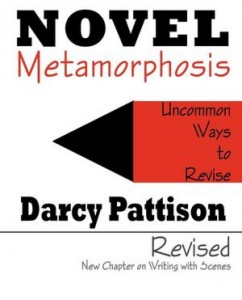 But, if you’ve attended my retreat or read my book, Novel Metamorphosis: Uncommon Ways to Revise, there’s a new version out. The main difference is an addition of a chapter on writing in scenes. If you bought the original version, I am happy to send you the Scenes Chapter–just email me at darcy at darcypattison dot come. I hope you’ll consider writing an Amazon review for the new version, but it’s free either way.
But, if you’ve attended my retreat or read my book, Novel Metamorphosis: Uncommon Ways to Revise, there’s a new version out. The main difference is an addition of a chapter on writing in scenes. If you bought the original version, I am happy to send you the Scenes Chapter–just email me at darcy at darcypattison dot come. I hope you’ll consider writing an Amazon review for the new version, but it’s free either way.
One last thing. If there are topics you’d like to see covered here at Fiction Notes, email me, too! I want to be helpful and knowing what you’re interested me will make me even more helpful. That’s what I really want for Christmas, an opportunity to spend another year here at Fiction Notes being helpful to other writers. Thanks for hanging out with me this year! May 2013 be a banner year for all of us.
Blog: Notes from the Slushpile (Login to Add to MyJacketFlap)
JacketFlap tags: young adult fiction, children's fiction, submission guidelines, Molly Ker Hawn, literary agent., Bent Agency, Add a tag
Welcome to guest blogger Molly Ker Hawn of the Bent Agency based in New York. Molly, who lives in London and works with authors in the UK and America, is on the look out for YA and middle grade fiction. The agency asks to see the first ten pages of manuscripts so I asked Molly for the ten most common mistakes she finds in those ten pages - so you can avoid them. I get about a hundred
Blog: Jennifer Represents... (Login to Add to MyJacketFlap)
JacketFlap tags: queries, submission guidelines, working with an agent, Add a tag
So I am all caught up on queries. Which should be a time for rejoicing!
I have plenty of stuff that I know clients are working on, so I don't need to find.
But... there are still things I am looking for. Holes on the list, if you will. So. Here's what I'd really like to see -- and note, this list is only MY taste, I am speaking for nobody else at my agency.
YES:
*MIDDLE GRADE* - I want a book that a kid is gonna read and re-read till the wheels fall off.
I tend to like MG books with a "classic" feel. I'm pretty much always partial to comedies, school stories, heartfelt family stories, mysteries, magical OR realistic adventure. I like stories where the kids are active, smart, have interests, hobbies, are super into the arts or athletics, or even have jobs or start businesses.
Recent favorite MG's include LIAR & SPY, BIGGER THAN A BREAD BOX, THE SECRET TREE. Old favorites include anything E. Nesbit, Hilary McKay, and Noel Streatfeild.
I appreciate a fun format/style. ORIGAMI YODA comes to mind, or THE NAME OF THIS BOOK IS SECRET. But you know, not those, because those are taken.
I'd love a great creeptastic MG ghost story, along the lines of Antonia Barber's THE GHOSTS, Patricia Clapp's JANE-EMILY or Mary Downing Hahn's WAIT TILL HELEN COMES.
I'd also love an animal story, particularly Dog or Horse... but no DEAD animals, please. Favorites include DOG'S WAY HOME, BECAUSE OF WINN-DIXIE, and the horse books of Farley, Smiley and Pam Munoz Ryan.
*YA* - I want to be absolutely invested in the characters and their world.
Realistic YA (or possibly magical realism): Examples: Character-driven weepers like Jandy Nelson's THE SKY IS EVERYWHERE, which takes your heart out and stomps on it, but then puts it back together with love. Or Natalie Standiford's HOW TO SAY GOODBYE IN ROBOT, a 'non-traditional friendship story' that made me cry buckets and see the world through new eyes when I was done. Or romance like ANNA & THE FRENCH KISS - light, bubbly, a love interest you adore, challenges to the relationship, but a happily ever after.
GLBTQ Romance is cool, as long as it isn't stereotypical or just a coming-out narrative. I'm interested in gender issues, gender-bending, and just basically queer stuff that isn't preachy or gloomy.
Sexy Historical -- I don't want to learn some dumb lesson about history -- I want to think about dresses, kisses and intrigue. For example GILT by Katherine Longshore was a favorite (I think of it as "Gossip Girl in the Court of Henry VIII" -- or VENOM by Fiona Paul, set amongst the murderers and artists of Renaissance Italy. I would really like a fun, sexy YA set in old Hollywood.
Brilliant, brilliant, brilliant. Hard to describe but um... Have you written something with characters that the reader falls in love with, that is also as riveting & cunningly wrought as CODE NAME: VERITY? If so, please come to me, my pretty little darling.
*HIGH CONCEPT MG OR YA*
A high concept premise should resonate with the reader immediately, be super appealing, and have a compelling twist. You should be able to immediately get a picture in your head of what this book will be about. And OH YEAH, the writing and characters still have to be awesome. Note: High Concept can be in pretty much any genre or category. If you can say the plot in one snappy sentence, that is often high-concept. Many movies are high-concept. (Click for more detailed explaination)
EXAMPLES of High Concept:
EVERY DAY by David Levithan. Every day, "A" wakes up in a new body, in a new house, in a new life... but every day, is in love with the same girl. (This is sort of a quadfecta, as it is h
Blog: WOW! Women on Writing Blog (The Muffin) (Login to Add to MyJacketFlap)
JacketFlap tags: freelance advice, queries, submission guidelines, Add a tag
There are a few freelance markets I regularly consider, and WOW! Women-on-Writing is one of my favorites. So when I read about the topic for an upcoming issue, I let it rumble around in my brain for a while.
And my brain eventually spit out a couple ideas for an article. But my brain also spit out a “Not so fast, sister.”
Sometimes, a query idea may be really great—except when it’s not great enough. Which sounds a little crazy so I’ll try to explain.
If you’ve ever read the submission guidelines for WOW!, then you’ll know exactly what the editors look for in an article. You know important details like word count and fonts and where to pitch the idea. But there’s another step that is just as important as reading submission guidelines, and that’s reading the market.
Reading the market where you want your idea/article to find a home is absolutely necessary. It gives you the depth, as well as the edge you need to catch an editor’s eye. Think of when you meet someone for the first time. You can see whether she’s short or tall, or if her eyes are green or blue. But when you talk to her, you find out the really interesting stuff, the juicy details that you remember much longer than how she wore her hair.
Your submission guidelines are like that first meeting; they give you the facts. But reading the market content is like getting to know someone better; you get details like style and tone, and what an editor likes.
So when I came up with my splendiferous WOW! ideas, I knew they fit the topic, but I wasn’t so sure they’d work for the ezine. One didn’t have enough take-away information (a big plus if you want your query accepted at WOW!) and the other idea was much more suitable as an essay rather than an article.
Still, I’d written down plenty of notes about those ideas. One might be sent off to Chicken Soup for the Soul. Another might morph into a children’s poem. And one might even show up here at The Muffin.
Because I never waste a great idea. Including the one about when a great idea for a market isn’t great enough.
Blog: Jennifer Represents... (Login to Add to MyJacketFlap)
JacketFlap tags: queries, rejection, submission guidelines, etiquette, working with an agent, Add a tag
Sometimes people say "YOU CAN'T GET AN AGENT UNLESS YOU KNOW SOMEBODY!" or "YOU CAN'T GET AN AGENT UNLESS YOU ARE PUBLISHED!" - but we all know both of these are myths.
Newbies with no publication credits get agents (and book deals) all the time. But they aren't REALLY newbies of course... they might be unknown, so far, but they've been working on their craft for years. They are good writers. And, I'd venture to say, they've also been mindful of the agents' time and tried to put their best, most polished work out there, and been sure to follow guidelines so as not to sour good will or burn any bridges.
Let's say for each finished manuscript you want to query, you are given a "chit" of sorts. This chit gives you access to x-amount of an agent's bandwidth/time/patience, provided the agent is taking queries.
Since agents are generally benevolent creatures who really want to help writers, they are happy to accept the chit. However, since agents don't know you from Adam and you don't have "good credit" yet, this chit is for, at most, three minutes worth of time. (If you've been referred or you do have other work, the credit line is likely to be a bit longer - but everyone gets credit). Since you have so little time, you'll definitely want to be sure to have followed directions and submitted a really stellar piece of writing!
If the agent is simply not interested in the book, you'll get your same chit back. Better luck next time, no harm done, try again later with a new manuscript.
If the agent likes the book, they will go ahead and give you more credit on that chit. Depending on how much they like the work, you might get a few hours or even a day of credit.
If they end up liking the book but they don't sign it up, you'll get the chit back, likely WITH the extra credit included. Go ahead and use it again next time. Yay!
If the agent loves the book and you become a client, you get a bag full of chits back. You can use them to ask lots of questions, and your agent will likely encourage you to do so, but do BE AWARE: Middle of the night panicked phone calls at home for no good reason WILL cost more than reasonable questions asked by email in the light of day. That being said, the longer your agent knows you, the more you work together, and the more sane you are in general, the bigger credit line you will get (so when you DO have a legit cause for a panicked phone call, don't worry, you'll get heard!)
BUT.
If your manuscript is riddled with errors, you have clearly never read the submission guidelines, or your work seems like a monkey might have typed it... you might not get your chit back. You can rebuild credit, but it is going to take a while, and you're going to have to submit something different in truly stellar shape next time.
If everything is OK but you pull a weird stunt like re-sending multiple slightly revised versions, or they request the full and you send it but then snatch the manuscript away from them as they're reading it, or they ask for revisions and you say you're on board but then nothing is actually changed... well. Again, you've cashed in your chit. It will take a while to get that line of credit back. It can be done, but it isn't going to happen overnight.
If you reveal yourself to be a class-A jerk by doing something like responding to a civil form rejection (or frankly ANY kind of rejection) with vitriol or threats - you cashed in your chit for good. In fact, you set your chit on fire. No more credit for you ever. (But what do you care, right? You have to know you are burning bridges when you send an email like that.)
Make sense?
PLEASE NOTE: THERE AREN'T REALLY QUERY CHITS. (But man, wouldn't life be easier if there were?)
Blog: Books for Little Hands (Login to Add to MyJacketFlap)
JacketFlap tags: Publishers, Literary Agent, Rejection, Submission Guidelines, Author Platform, Author Bio, Slush Pile, Cover Letter, Target Audience, Pitch, Publishing Terms, Books Proposal, Unsolicited, Query Letter, Add a tag
Query Letter: Is a one page email or letter to an editor/publisher asking if you may send your book proposal. The query letter has to showcase your writing skills so keep it professional. You don't need a query letter if the publishers website states that they are currently accepting unsolicited manuscripts.
Pitch: A successful pitch sets up your book and the need for it in the marketplace. Try the elevator test and see if you can sum up your book in the time it takes for an elevator to go from your floor to the lobby. You could also set up a timer and give yourself 5 minutes to explain your book.
Blog: WOW! Women on Writing Blog (The Muffin) (Login to Add to MyJacketFlap)
JacketFlap tags: submission guidelines, American magazines, writer's markets, Add a tag
In honor of Independence Day, we thought you'd enjoy this special selection of writers' markets that celebrate being American. From cake decorating to motorcycling, there's bound to be something for you. So as you're barbecuing, picnicking, or enjoying a fireworks show, remember to take mental notes of potential story ideas. As always, although we try to be as accurate as possible, make sure you double-check with the editor for any changes in guidelines and their current needs. Happy 4th of July!
About: American Artist is a magazine of ideas and inspiration for practicing artists living in the United States. It includes both profile articles and step-by-step demonstrations. Service articles provide methods by which artists can improve their skills and collectors can improve their knowledge of fine art. It covers a balance of art mediums including oil painting, watercolor, acrylics, drawing, sculpture, and printmaking.
Needs: Feature articles on contemporary American realist artists; instructional articles written by artists themselves explaining in detail their techniques, including brand names of materials used; articles on the business aspects of art; articles on art materials and equipment.
Pay: $500 for articles of about 1,500 to 2,000 words, on acceptance.
Guidelines: http://www.artistdaily.com/media/p/45249.aspx
Submit: Send a query letter along with your resume and clips to Michael Gormley, Editorial Director, American Artist magazines, 133 W. 19th St., 7th Floor, New York, NY 10011
About: American Baby is a monthly magazine for expectant and new mothers with a child up to two years old. "It's the complete guide to new parenthood, giving young families all of the information they need on prenatal care, baby's growth and development, and family health and lifestyle changes, including mom's beauty needs, relationships and family finances."
Needs: How-to, general interest, humor, fitness, personal experience, beauty.
Pay: Varies, but writers report $600-$800 for a 1,000 word article.
Submit: Send a query letter with SASE to American Baby Magazine, 375 Lexington Avenue, New York, NY 10017
About: American Cake Decorating is a magazine for cake decorators of all levels--those who pursue it as a hobby as well as those who make a business of it. It publishes step-by-step instructional articles, hints and tips, expert commentary, quick decorating ideas, a gallery of cake photos, book reviews, new products, a calendar of events, and topical articles.
Needs: Birthday (including Sweet 16, Bar/Bat Mitzvah) cakes, novelty and special occasion cakes, wedding cakes. Looking for work in more traditional American media such as buttercream, royal icing, and/.or chocolate.
Pay: Varies, but writers report $0.02-.05 per word.
Submit: Mail or email a query letter with images to editor[at]americancakedecorating[dot]com or to Space Downtown, re: American Cake D
Blog: Buried in the Slush Pile (Login to Add to MyJacketFlap)
JacketFlap tags: submission guidelines, electronic submissions, Add a tag
Remember, today is the absolute last day to submit your picture book to CBAY Books. After today, we are going to close submissions again for a little while (specifically until we've responded to all of these.)
If you are planning to submit, be sure to read the submission guidelines, and then drop your manuscripts our way.
Blog: Buried in the Slush Pile (Login to Add to MyJacketFlap)
JacketFlap tags: submissions checklist, submissions, submission guidelines, electronic submissions, Add a tag
The final days are approaching until we start picture book submissions. Based on some of the questions and emails I've been getting, I can tell that people are starting to get nervous. To help reduce some of that stress, I've compiled a handy little checklist to go through before you hit the send button submitting your manuscript to us. Admittedly, this list is geared for this particular submission, but you can use it for just about any submissions (both online and off) that you make.
For a printable version you can check off yourself (that does not have my colorful commentary of each item), click here.
(As compiled by the Buried Editor)
- Correct Editor/Agent Name and spelled correctly -- getting this wrong will get our backs up every time
- Correct Publishing House/Agency and spelled correctly -- ditto
- Correct Address/Email address -- or it might not get to us at all
- Formal salutation -- remember, this is a professional introduction
- Introductory paragraph providing context (why you are submitting, where you met editor, etc.) -- tell the truth, after all we don't really care that much, this just helps us jog our memories
- Pitch paragraph(s)
- Title of manuscript -- amazing the number of people that forget this
- Manuscript’s genre -- useful
- Age range for manuscript -- granted, we can tell when we read the manuscript, but this helps us in the beginning know whether or not its even something we are looking for and whether or not you know
- Summary of manuscript -- this is where you really sell us on the work
- Series paragraph (optional)
- Title of series -- a bad tentative title is better than nothing
- Projected number of books in series -- if you're working on an extended plot series (think Harry Potter) you should know, otherwise, the number you want to write
- Biography paragraph
- Publishing experience -- do not list every instance. Send a CV for that. Hit the relevant highlights here
- Relevant education
- Trade organization memberships (SCBWI, etc.)
- Thank you for allowing submission/Request to send manuscript if a query -- word politely, after all there's no point in alienating the editor/agent by demanding
- Signature -- remember to actually sign a physical letter (I forget all the time!)
- Your correct contact information
- Email -- if it's wrong I won't be able to reach you
- Phone -- ditto
- Website -- if you have one. If you don't, it's not necessary.
- Blog -- if you have one. If you don't, it's not necessary.
- Address -- optional in electronic submissions
- Proofread letter -- missing words in letters happen, but it can be annoying and make for strange sentences
- Spell-check -- computer should do it, but always double check
- Have someone else read & critique letter -- you will never find all of your own errors. This is very important to have someone who is honest with you do this
- Professionalism -- making sure it isn't too casual
- Coherence -- nerves can come out in writing leading to odd sentences (or sometimes a word is missing or its homonym was used)
- Interesting portrayal of pitch paragraph(s) -- did it interest your reader. If not, it probably won't interest me either.
- Formatted Properly -- seriously, folks do this right. It's such a little thing but so frustrating when wrong. And it makes the things very hard to read.
- If printed or attached as document:
- Double spaced
- 12 point font (Arial, Times)
- 1 inch margins
0 Comments on Checklist for Submitting as of 1/1/1900Add a Comment
Blog: Buried in the Slush Pile (Login to Add to MyJacketFlap)
JacketFlap tags: electronic submissions, submissions, submission guidelines, Add a tag
Just think, in only 5 days (5 days!) our submission period for picture books will begin. We’ve been bracing ourselves getting very excited over the prospect of all of those submissions. We've also been getting some great questions that I want to share with you today.
If I'm submitting several books in a series, should they all go in one email or still be submitted in separate emails?
Actually, if you have several books in a series, you only really need to submit the first one. After all, if we don't like the first one, we probably aren't going to be to into the rest of the series, especially if they build on one another or are interdependent. What you should do for that first one though is make sure you include in your cover letter that it is the first in a series and then describe the series a bit.
However, if you would still like to send multiple books, be sure to send them in separate emails. With the dummies this is essential to make sure the emails don't get to large and don't come through, but even with the manuscripts we prefer that they be separate for internal housekeeping reasons.
Can I submit early?
No.
Really, there would be no point. We're not going to look at them before the 15th. In fact, this week is a busy week to ensure that we will have time to start processing through the submissions next week. Also, we're trying to keep that email open for questions right now. If a bunch of submissions start coming in, those questions are going to get lost.
Can I submit more than five?
No.
Seriously, if you can't narrow it down to five, you aren't being discriminating enough. Have a trusted, yet honest, friend help you. I really should only be asking for 1 or 2, but I'm aware that what I think is your best isn't what you may think is your best. So, I'm giving you the benefit of a few more submissions. After all, picture books are short and can be gone through pretty fast.
I don't have a completed dummy, but I am a professional illustrator interested in illustrating my own book. What should I do?
In that case, submit with the authors and do a regular manuscript submission (Subject line: Fantasy or Science Fiction Picture Book Submission), but attach a sample illustration from your book instead of a dummy. Illustrations should be high resolutions jpgs, gifs, or pdfs.
My dummy does not contain any color illustrations. Can I still submit it?
Obviously if you are never planning on black & white or spot color illustrations, you do not need to change your plan now. My request for a color cover and at least one full color illustration is to get an idea of your style, not because I am only considering color picture books. I'm willing to look at any illustrative style or medium or color palette. The more complete the dummy, the better sense I will get, but I can still work off rough but comprehensive sketches. However, again, please have at least the cover and one illustration complete. It's hard to visualize your water color style if all I see are pencil sketches.Blog: Buried in the Slush Pile (Login to Add to MyJacketFlap)
JacketFlap tags: electronic submissions, submissions, submission guidelines, etiquette, Add a tag
As everyone knows, there is always a polite way to go about doing things. In this age of reality shows where screaming makes you famous and atrocious behavior makes you money, this concept is sometimes forgotten. However, there are people (like say me and every other editor and agent on the planet) who appreciate courtesy. In fact, it will make you look more professional than the rude louts we all cringe at having to deal with. So, in that spirit, I have compiled a small list of polite things to consider when making an electronic submission.
- If you are doing multiple submissions, you need to send multiple emails.
I am not saying you can't do a simultaneous submission if the editor/agent doesn't require exclusive submissions. That's fine. What I am saying is don't use the exact same "Dear Editor" email and then type a bunch of different editor emails into the To or Bcc field creating a mass email. For one thing, we can tell when this has happened, even when you use the Bcc field. (It's pretty obvious.) For another, it means that you haven't taken the time to personalize the email to anyone which means you probably haven't bothered to learn if your manuscript is even a good potential fit for the editor's list. You can use chunks of your cover letter for every editor (the pitch and bio paragraphs won't change much), but otherwise you should carefully consider each person you submit to, and make slight changes to suit that editor. Just as you shouldn't make xerox copies of a cover letter and stick it in a bunch of submission envelopes, you shouldn't send carbon copies of your email cover letter. Besides being kind of rude, it makes you look lazy. - Do not make demands.
Unfortunately for submitters, editors are the ones with all the power. (And let's face it, most of us only have a little bit compared to the Senior Editors or Editorial Directors or Publishers or other departments like Marketing that have a say in acquisitions. Very few have my luxury of owning the whole show.) We decide what is printed, when, and in what format, and our decisions are controlled by market forces as much as they are by our own tastes. This means that authors are in no position to make demands. Besides being annoying, they make you look clueless. - Do not tell me that passing on your book would be stupid or the greatest mistake of my life.
Do I really have to explain this one? No one, including me, likes having their intelligence doubted. It almost instantly puts a person in a negative mood no matter how much they try to resist it. Why would you want a person who is about to read your manuscript to now be in a less than stellar mood? And let's face it. I've done (and will do) many stupid things in my life, but passing on a manuscript has never even come close to making the top 1000. - Do not lie to me.
Lying makes you untrustworthy, and no one wants to do business with someone they can't trust. So, don't tell me that I critiqued you at a conference and asked for the manuscript if I didn't. Don't tell me your manuscript is under consideration with XYZ editor at ABC house if it's not. I will know if you're lying. Trust me. - Do disclose if you are doing a multiple submission.
They're fine with me, just tell me you're doing it. Also, let me know if it's under consideration at another house (an editor has told you he/she is considering it) or another house has offered for it. Although if you do have an offer and are submitting to me in the hopes of starting a bidding war, don't bother. I don't do bidding wars or participate in auctions. Finally, let me know if you are agented. (Because from that moment on I'll need to be talking to him/her not you.) - Do not email asking for progress on your submission.
If your m Add a Comment
Blog: Writing for Children with Karen Cioffi (Login to Add to MyJacketFlap)
JacketFlap tags: marketing, queries, submission guidelines, query process, Add a tag
Today I have a valuable artice from Beth Ann Erickson of Filbert Publishing.
Are You Making These Silly Mistakes?
By Beth Ann Erickson
Sitting on this side of the editorial desk is amazing. I hear stories about how hard it is to get published, all the while reviewing queries that cross my desk.
This unique perspective has vividly illustrated an interesting phenomenon in the publishing world: It's not hard to get published, what's evidently hard is writing something publishers need. Let me explain.
When it comes to queries and proposals, we rarely reject a manuscript due to sloppy writing. Writers tend to be an educated and talented lot. Nine times out of ten the problem lies in one of these areas:
The author hasn't read the submission guidelines.
We publish (maybe) one piece of fiction per year. Yet 99 percent of all queries received are for fiction. We're clear about this in our guidelines, yet the queries flow in. Of the remaining one percent, most queries are not in our genre. We probably receive one appropriate query every six months, if that.
Next problem, getting the name wrong. My name isn't “Bart.” Maury's name isn't “Mary.” Our name isn't “editor” either. Personalize the query for a better chance of getting it read.
Finally, we don't publish books over 100k words. We say this in the guidelines.
Yet, we receive queries for (up to) 250k words. That's simply too long. It makes for a big, expensive book that we'll have trouble selling.
Simple fix? Read the submission guidelines carefully before submitting. Your competition isn't doing this so you've got an automatic leg up.
No SASE
Snail mailing a query without a SASE will usually not receive a response.
When I've got my marketing hat on, I know it's imperative to make it effortless for a prospective customer to respond to my offer. I slip in a SASE. I make the order form easy to navigate. I do everything I can to make the process simple because even one extra step can depress response by a LOT.
Not including a SASE is a big mistake. Some writers will include an e-mail address, but I wouldn't hold my breath waiting for a response. That would require effort on the part of the publisher. I'm not saying we're a lazy bunch, but I can say we're busy and sending rejections is not fun. Any “not fun” activity gets put off until... well... until we've got a spare minute to craft a response, correctly type in the e-mail address, and hit “send.” And that spare minute can be a long time in coming.
Also, sending queries via e-mail can be tricky as well. More than once, I've received a frustrated e-mail from an author asking why I didn't respond to their query. Sometimes I didn't realize they sent a query.
Spam filters can catch your e-mail. Sometimes an overzealous “deleting” session can toss it in the “trash” unread. Who knows?
Follow up your queries with a polite e-mail or send it snail mail and include a SASE.
Not researching your target publisher
Know your reader. It's every writer's mantra. If you can touch your reader, you'll sell your work.
The same goes for the query process.
Capture the voice of your intended audience... the publisher. Read what they've published. Find out what they're looking for and give it to them. Ask yourself, “Wh
Blog: A. PLAYWRIGHT'S RAMBLINGS (Login to Add to MyJacketFlap)
JacketFlap tags: theatre, submission, play, playwright, playwriting, submission guidelines, Add a tag
For whatever reason - lack of a proper filing system springs to mind - there are problems when it comes to submitting my plays to various theatres or competitions. This point was brought home recently upon reading the guidelines to a 10-minute competition that could be a fit for my short plays. This is a yearly competition and as I recall it was the lucky (IMHO) recipient of one of my literary offerings last year but the problem is...which one.
In the past I opened a file to keep track of which plays were sent to whom but along the way, I stopped making notes. Now I'm forced to play a guessing game in order to hide my ineffectual (read: non-existent) filing system. Should I own up to this fact in a covering letter? Something to the effect:
"Dear blah-blah,
Please find my short play, blah-blah, for your 10-minute competition. Perhaps it might look familiar and could have been one of last year's entries but then again, maybe not. If it doesn't strike a familiar chord, then consider it my official submission."
Be that as it may, I'm going to check through my "sent" file and see what turns up, if anything. If not - it's another guessing game. Did I mention that my play wasn't among those selected to be performed. Then again maybe I meant to send it but never got around to doing it. Go know!
Blog: Stacy Whitman's Grimoire (Login to Add to MyJacketFlap)
JacketFlap tags: publishing, fantasy, submissions, submission guidelines, Add a tag
Another writer question, the answer for which I think will help more than just one writer. If any of you have questions about what we’re looking for or anything to do with the submission process, please let me know, and I’ll be glad to answer here on the blog (anonymizing your question so it can be generalized).
i was really glad to see Lee and Low’s new imprint. I’m a long time fantasy/sci-fi fan distressed by the cultural sameness of the genre. I have a middle-grade novel that I am currently doing some final revisions for before submission. Because I realize time is valuable commodity for editors, I wanted to get a sense how expansive your fantasy/sci-fi terms were, before I submitted.
My novel is fantasy the way Harlan Ellison’s, short fiction, or Octavia Butler’s Kindred is fantasy. It is a slight conceit used to push the character forward. I do not engage in a discussion of big ideas like Xenogenesis, Foundation etc., nor provide a full-fledged alternative universe like Cordwainer Smith, William Gibson or Anne McCaffery.
So my question is, is that enough? Obviously, you cannot decide on the individual merits of piece without seeing it, but I wanted to be sure I was targeting the appropriate house. Also, Lee and Low’s main imprint requires a chapter by chapter synopsis, but you only suggest a synopsis. May I assume you want a simple one page synopsis (plus first three chapters)?
First, addressing the question of what kind of fantasy we’re looking for:
Fantasy in children’s and YA books is pretty wide open. It can be anything from changing one little thing in the real world (people can fly or be telepathic, etc., or there’s a secret magical cult of ninja vampires, or the Knights Templar secretly fight the undead, unknown to the wider world, or, I don’t know, a girl like Matilda finds out she can teleport things, but maybe nothing bigger than a pencil), to changing a whole world in the future or alternate history (dystopian SF like The Hunger Games or steampunk like Leviathan), to alternate world high fantasy, either through portals (like Harry Potter) or just starting out in that world (like fairy tale retellings).
I’m not sure what you mean by a slight conceit to push the character forward. If you mean something akin to just one little thing changing—such as the ability to time travel, but not control it, as happens for the main character of Kindred—sure! That works, definitely. There are a LOT of middle grade and chapter books based on just such an idea, a small tweak of reality as opposed to huge sweeping differences in worldbuilding.
But I just want to be sure that you’re also familiar with what’s out there right now for children and teens, and not just what was published in the 70s and 80s by some of the best authors on the adult side. If you haven’t already, I suggest going to your local bookstore (or library, but the bookstore is better for seeing more current books all in one place) and looking at the middle grade and YA shelves to get a good idea of how broad the definition of SF/fantasy is in that section. While Octavia Butler’s work is classic and everyone should read them, they’re not what teens are reading right now (at least, not exclusively—of course they’re still reading her, or she wouldn’t be a classic).
Same goes for middle grade readers. Some books will always be classics, but when thinking about writing for a middle grade audience, you want to start from the idea that modern kids will be reading this, so you don’t want to use titles written for adults 30 years ago as your comparison point. As I look at my shelves filled with Shannon Hale’s Goose Girl and Princess Academy,
Add a CommentBlog: A. PLAYWRIGHT'S RAMBLINGS (Login to Add to MyJacketFlap)
JacketFlap tags: competition, playwright, plays, submission guidelines, performance, theatre, Add a tag
"So Eleanor - an update on your attempt to get one of your plays produced?"
In spite of submitting to 10-minute play competitions, I'm no further ahead than when I started this exercise in futility many years ago. I'm aware that competition is fierce but my plays are good - at least IMHO and on top of that they're comedies. Heaven knows we all need a laugh these days.
So now I'm re-thinking this obvious effort of futility and perhaps give up the whole idea of submitting my plays, altogether. This decision was made five minutes ago when I checked a site containing the list of playwrights whose plays were accepted and - surprise - my name wasn't among them. This came after other plays sent out were also rejected.
Obviously - at least it seems obvious to me - the plays aren't as good as I believe them to be. Some of them were written years ago but they are so "neutral" that they are still applicable and can be performed. Maybe not.
No more tweaking in the hope that changes will make them produce-able. No more submitting. Rejection thy name is playwriting.
Blog: The Winged Elephant (Login to Add to MyJacketFlap)
JacketFlap tags: rumo, captain bluebear, walter moers, city of dreaming books, Add a tag
 Walter Moers, author of Rumo and The 13 1/2 Lives of Captain Bluebear, is one of the best-known and most successful German authors and illustrators. In his new novel The City of Dreaming Books, Moers invites readers to experience the strange world of Bookholm, a book-obsessed metropolis in the land of Zamonia. Translated from the German by John Brownjohn.
Walter Moers, author of Rumo and The 13 1/2 Lives of Captain Bluebear, is one of the best-known and most successful German authors and illustrators. In his new novel The City of Dreaming Books, Moers invites readers to experience the strange world of Bookholm, a book-obsessed metropolis in the land of Zamonia. Translated from the German by John Brownjohn.
Blog: A. PLAYWRIGHT'S RAMBLINGS (Login to Add to MyJacketFlap)
JacketFlap tags: plays, playwriting, stage, submission guidelines, entertainment, drama, Canadian, e-mail, eleanor tylbor, a. playwright's ramblings, theatre, comedy, dialogue, submission guidelines, plays, playwriting, drama, entertainment, stage, e-mail, eleanor tylbor, Canadian, a. playwright's ramblings, Add a tag
SUBMISSION OPPORTUNITY: AN ONGOING DIALOGUE WITH SELF
BY Eleanor Tylbor
PLAYWRIGHT
Oh look! The Blankety-Blank Theatre is asking playwrights for plays. Hmmmm...interesting... Wonder if they're accepting plays from outside the U.S. Probably not...
INNER VOICE
There you go again! Negative. Always negative! Maybe they are!
PLAYWRIGHT
Yeah... Could be. Neh. I mean, this is a well-known and substantial theatre. They have enough playwrights domestically
INNER VOICE
So? What does that have to do with anything?
PLAYWRIGHT
Nothing but somehow I have a feeling they don't
INNER VOICE
You and your dumb feelings! How many opportunities did you let slide by based on your "feelings"?
PLAYWRIGHT
Let me read the guidelines, here... Hmmm and mmm - course I'm right. All the people and judges involved are from the U.S. Why would they waste time reading a play from an un-American? I suppose it would be a similar situation if it were reversed. You know - a Canadian theatre holding a playwriting competition? 'Course I wouldn't know having never won...anything, anywhere, anyway at any time. Oh to see my work actually up on a stage!
INNER VOICE
It doesn't say anything one way or the other. Why don't you query them and find out at least?
PLAYWRIGHT
Yeah... I could... I suppose... Maybe... I guess it would be a good idea. Let's see if they have an e-mail address... Hmm... Says here they have a lot of people reading all the entries. Well - that just about screws me. Wonder if they specialize in drama...or comedy...
INNER VOICE
So query and find out!
PLAYWRIGHT
Know what? It really scares me that lots of people will be reading my play. People who don't even know me or anything about the history of my play! How can they judge the merit of my intellect?
INNER VOICE
Nobody in Canada knows anything about it - or you either, doofus!
PLAYWRIGHT
True... It's just the idea of strangers reading my play and passing judgment on it. 'Oh look', they probably say to each other. 'This is laughable! She calls herself a playwright?' I bet they do that! Have a good laugh at our expense!
INNER VOICE
You're creating barriers again!
PLAYWRIGHT
Perhaps...Let me read some more about this theatre. Just as I thought! I could end up having a reading and not a production!
INNER VOICE
So what's wrong with that?
PLAYWRIGHT
What do I have to gain from a mere reading? I want a production! No - I need a production! I could just as easy get a group together and have a reading of my play. I don't have to spend who knows how much on postage and wonder whether anybody even read it.
INNER VOICE
So do it! Stop complaining for heaven's sake and do something. Your play will never see the light of day by sitting at a computer reading theatre submission guidelines.
PLAYWRIGHT
I'm sick and tired of submitting and daring to hope that maybe - just maybe - the play will be produced! All the while waiting and waiting for news. Checking the mail and the Internet for some response and all the while doubt creeping in and over-taking hope. What else do playwrights have to live for but hope?
INNER VOICE
You're telling me this? Me who shares your anxieties?
PLAYWRIGHT
What happens though if I can't find anyone who wants to read?
INNER VOICE
What happens if you do find people who want to read? If you don't take the first step, you'll never know. Go for it!
PLAYWRIGHT
Oh look here... this looks like just the theatre I've been looking for. I got a good feeling about this one.
Blog: The Winged Elephant (Login to Add to MyJacketFlap)
JacketFlap tags: captain bluebear, walter moers, zamonia, Add a tag
Germans have all the Spass! Check out Walter Moer's 13 1/2 Lives of Captain Bluebear with songs, dancing and puppets. Whoa! Broadway...please bring this to America! Zamonia on the Great White Way! I smell a Blockbuster!



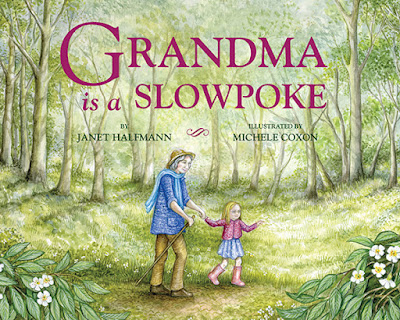
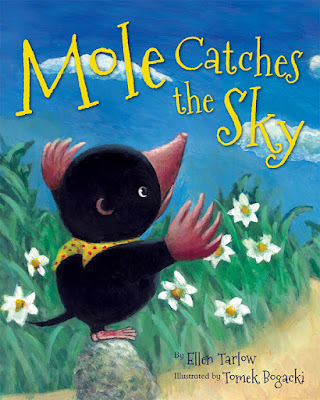

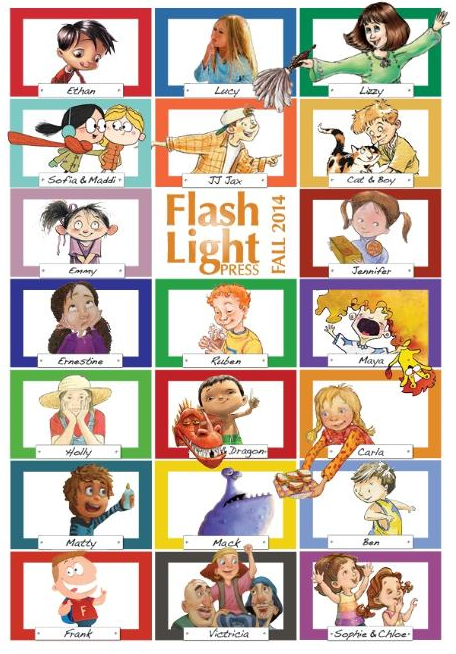





Thank you for this, Kathy :D